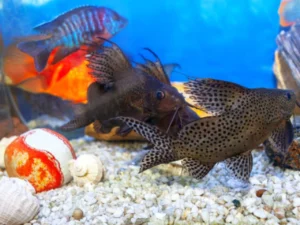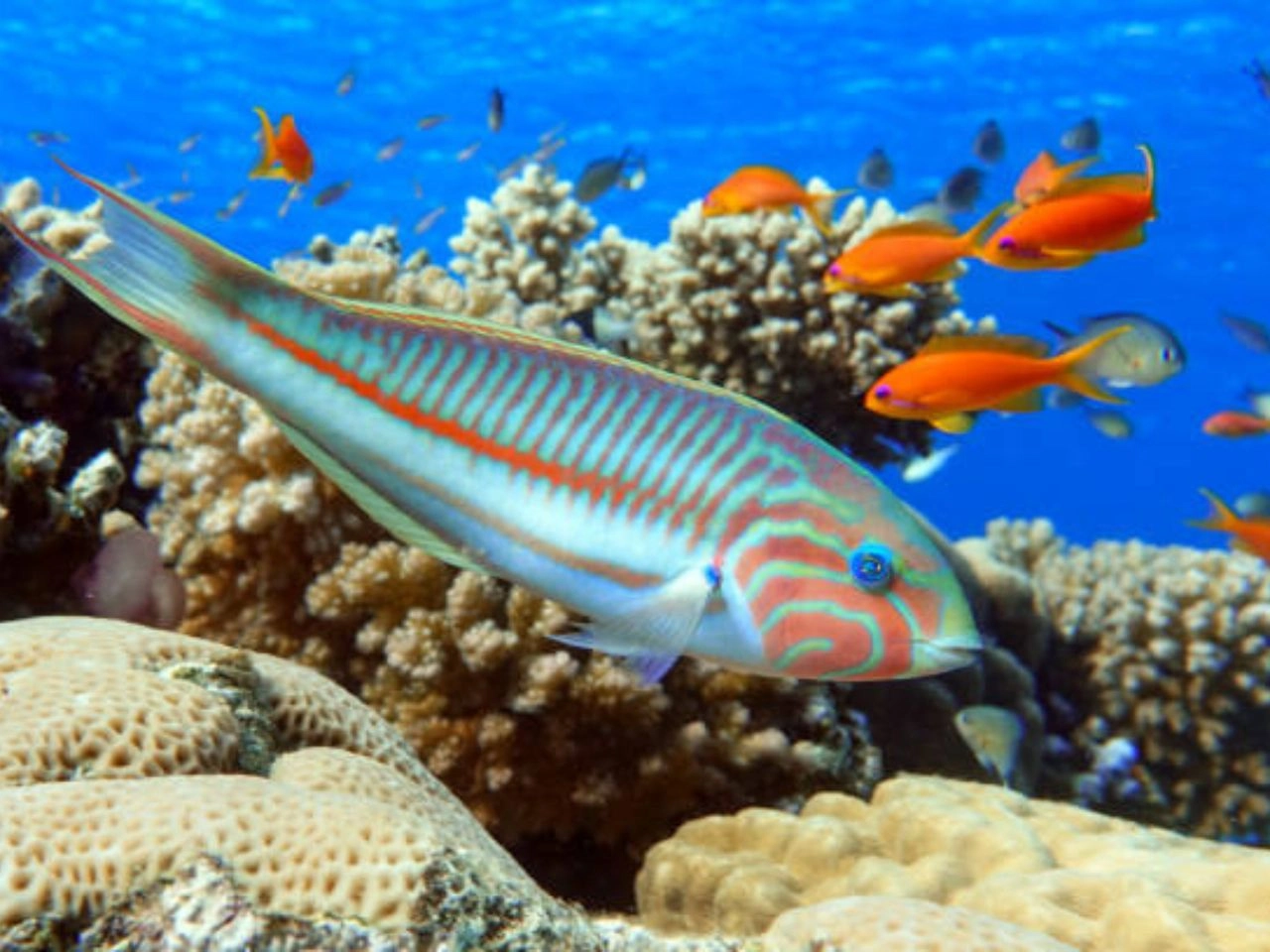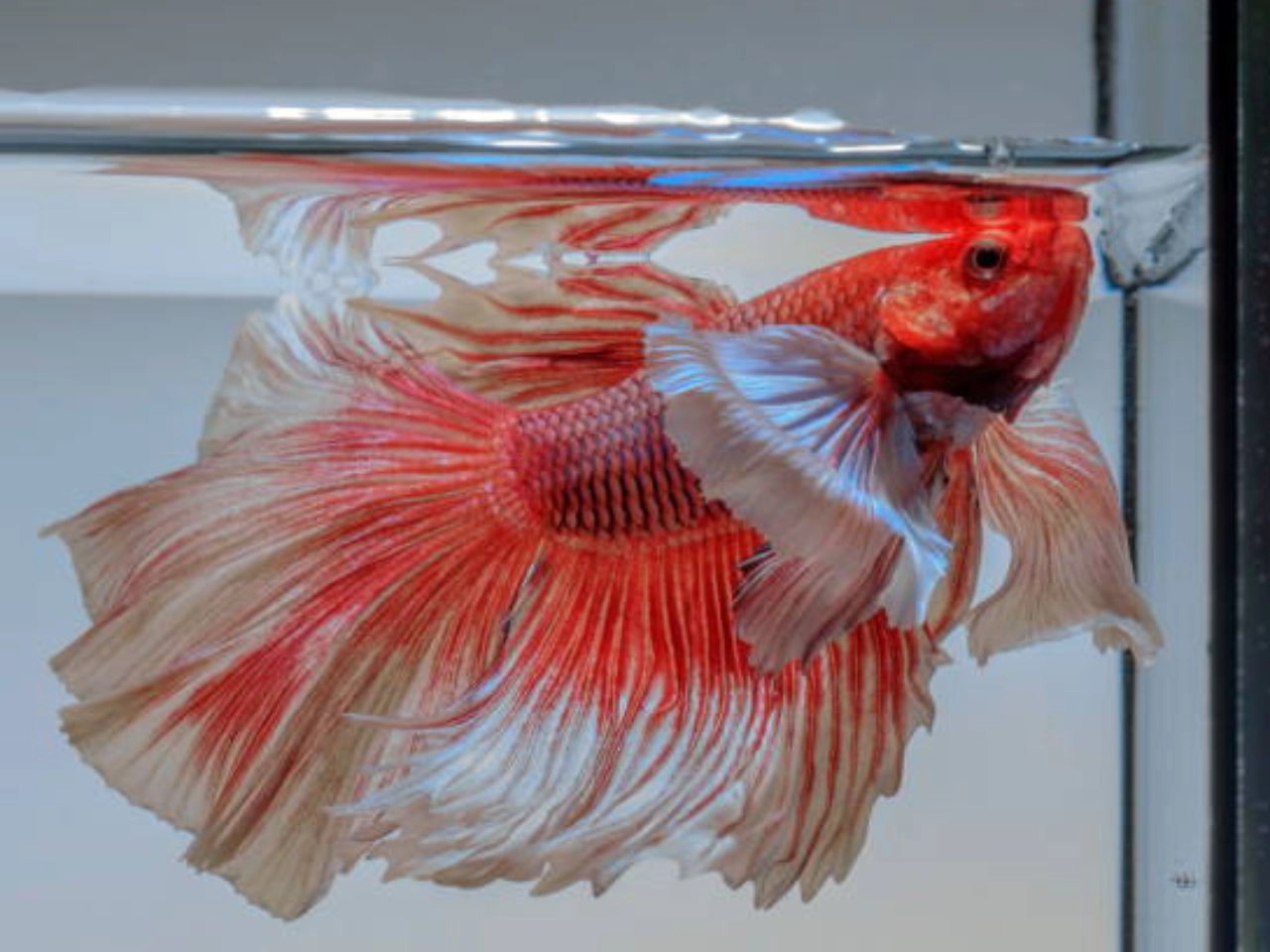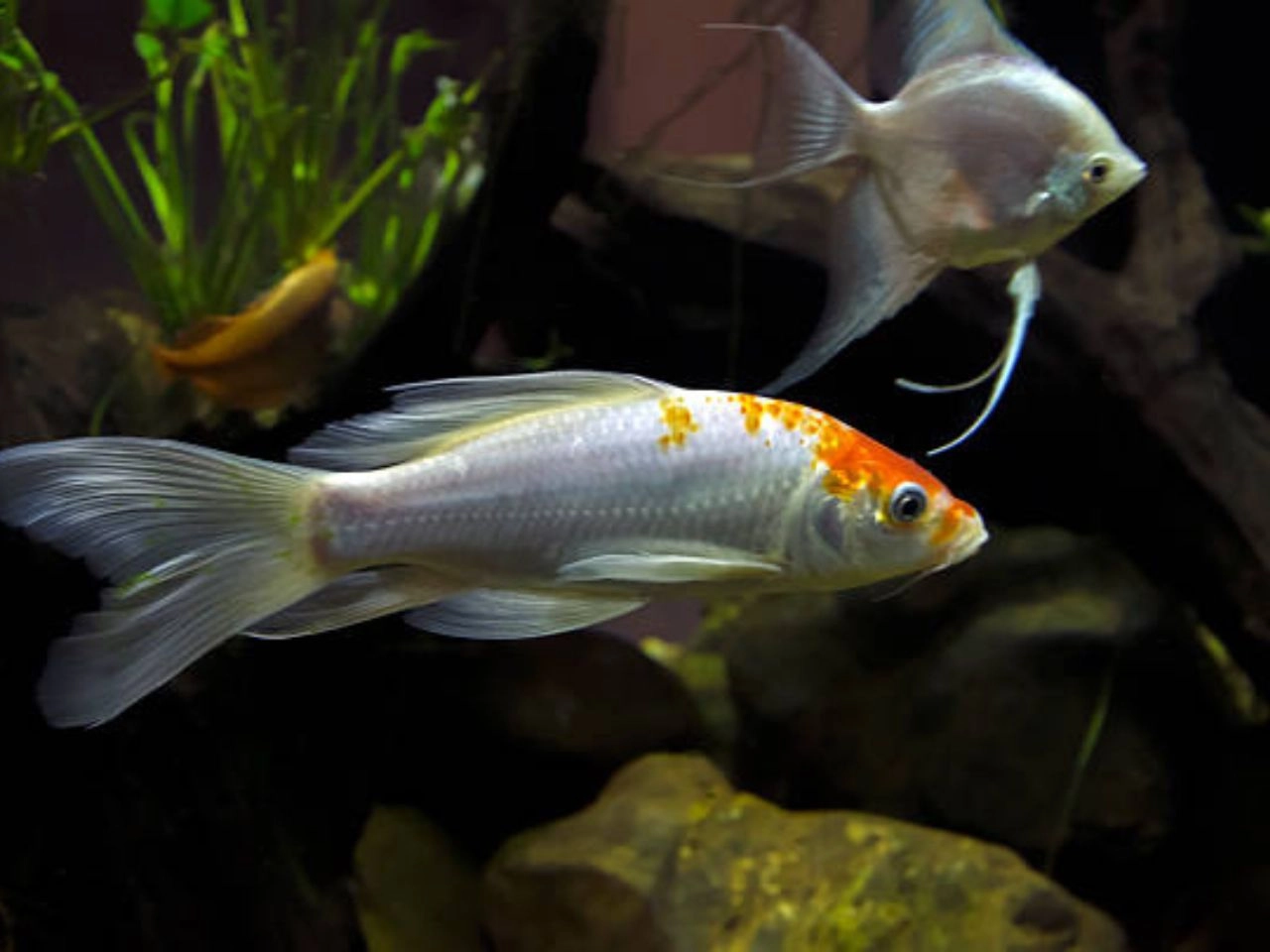Bottom feeding fish are freshwater species that feed on materials at the bottom of water bodies. They play a critical role in aquatic ecosystems by cleaning up debris.
Bottom Feeding, such as catfish, loaches, and certain types of carp, are often sought after by aquarium enthusiasts for their ability to help maintain a clean and balanced tank environment. These fish typically have mouthparts adapted for suction or scraping, allowing them to consume a wide variety of foods ranging from algae to detritus.

By choosing the right mix of bottom feeders for a freshwater aquarium, hobbyists can ensure a healthier underwater habitat while enjoying the unique behaviors these fish exhibit. Their presence can also limit the growth of harmful bacteria and algae, contributing to the overall well-being of the aquatic community.
What Are Bottom Feeding Fish Freshwater?
Bottom-feeding fish live at the bottom of rivers, lakes, and ponds. They eat things found on or in the bottom mud. These fish help keep the water clean.
Types of Feeding Fish
Many kinds of fish eat from the bottom. Catfish, plecos, and loaches are common ones. Each has its own favorite food.
Why Keep Bottom Feeders?
Bottom feeders are great for tanks. They eat leftover food and algae. This makes the water safer for all fish.
Care Tips For Bottom Feeders
These fish need clean water and the right food. Some like vegetable tablets; others need meaty bits. It’s important to know what your fish likes.
Also, make sure they have places to hide. Bottom feeders enjoy spots under rocks or in caves.
Popular Bottom Feeder Fish For Freshwater Tanks
| Fish | Size (inches) | Diet |
|---|---|---|
| Corydoras Catfish | 1-4 | Worms, small insects, plant matter |
| Plecostomus | 6-24 | Algae, plant material |
| Kuhli Loach | 3-4 | Small invertebrates, plant matter |
Benefits Of Bottom Feeding Fish In Freshwater Tanks
Bottom-feeding fish play a key role in freshwater tanks. They help keep the tank clean by eating leftover food and algae. These fish also stir up the substrate, which promotes a healthy aquarium environment.
Natural Cleaners
Bottom feeders act as nature’s vacuum cleaners. They scoop up waste that other fish leave behind. This means less work for you and a tidier tank for all.
Balance In The Ecosystem
These fish create a balanced ecosystem in your tank. They break down waste, which plants can then use. This circle of life keeps your tank healthy and vibrant.
Algae Control
Algae can take over a tank if not controlled. Bottom feeders eat algae, helping to keep growth in check. Your tank stays cleaner and more beautiful.
Stress Reduction For Other Fish
Other fish can get stressed by too much waste. Bottom feeders reduce this stress by keeping the tank clean. Happier fish means a more peaceful tank.
Interesting Behaviors
Watching bottom feeders can be fun and educational. They have unique behaviors that add life to your tank. It’s great entertainment for everyone.
Popular Types Of Bottom-Feeding Fish For Freshwater Tanks
Welcome to the underwater world of freshwater tanks! Here, bottom-feeding fish play a key role. They help keep the tank clean by eating leftover food and algae. Let’s dive in and meet some of these amazing fish!
Corydoras Catfish
Corydoras Catfish, also known as Cory Cats, are small and peaceful. They have armor-like plates on their bodies. These little cleaners will sift through the sand for food. They are perfect friends for other fish.
Plecostomus
The Plecostomus, often called “Pleco,” is famous for algae eating. With their sucker mouths, they stick to the glass and rocks. They come in different sizes and colors. Remember, some Plecos can grow very large!
Loaches
Loaches are known for their slender bodies. They love to dig in the substrate. Clown Loaches and Kuhli Loaches are among the favorites. They are very good at finding snails to eat.
Otocinclus
Otocinclus are tiny algae eaters. They work well in groups. These gentle fish are great for planted tanks. They need lots of plants and a soft current.
Table Of Bottom Feeders
| Fish Type | Size (inches) | Temperament | Best Feature |
|---|---|---|---|
| Corydoras Catfish | 1-4 | Peaceful | Sand sifting |
| Plecostomus | 6-24 | Varies | Algae eating |
| Loaches | 2-12 | Social | Snail hunting |
| Otocinclus | 1-2 | Peaceful | Algae eating |
Tips For Caring For Bottom-Feeding Fish
Caring for bottom-feeding fish is fun and rewarding. These fish help keep tanks clean by eating leftover food and algae. With the right care, they can be great tank mates.
Understanding Bottom Feeders
Bottom feeders are special fish. They live at the tank’s bottom. They like to eat things that fall from above. Algae, pellets, and wafers are their favorite foods.
Best Tank Conditions
Clean water and the right temperature are vital for these fish. They need places to hide too. Rocks and plants make good hiding spots.
Feeding Your Bottom Feeders
Feed them once or twice a day. Choose sinking foods that reach the bottom. This way, they can find their meals easily.
Common Bottom Feeder Fish
| Fish Type | Size | Temperament |
|---|---|---|
| Corydoras Catfish | Small | Peaceful |
| Plecostomus | Large | Peaceful |
| Loaches | Medium | Active |
Health And Disease Prevention
Watch for signs of sickness. Healthy fish are active and have good appetites. Regular tank cleaning prevents disease.
FAQ(Bottom Feeding Fish Freshwater )
What Fish Feed Off The Bottom?
Bottom-feeding fish include catfish, carp, and certain loach species. These fish scavenge the substrate for food, consuming detritus and small organisms.
What Kind Of Fish Are In The Bottom Feeder?
Bottom feeders commonly include catfish, carp, goatfish, loaches, and some types of eels. These fish typically consume algae, plants, and small aquatic creatures.
What Is The Best Bottom Cleaner Fish?
The best bottom cleaner fish are plecos and Corydoras catfish, known for their efficient algae-eating and substrate-cleaning abilities.
What Bottom Feeder Fish To Avoid?
Avoid bottom-feeder fish like the common plecostomus, which outgrows tanks quickly, and the Chinese algae eater, known for aggressive behavior. These species can disrupt tank harmony and require careful management. Opt for smaller, community-friendly bottom feeders instead.
Exploring the world of bottom-feeding fish in freshwater habitats offers a fascinating glimpse into aquatic life. These creatures play vital roles in their ecosystems, contributing to water cleanliness and balance. For aquarium enthusiasts or nature lovers, understanding and appreciating these fish enhances our connection to the underwater world.
Embrace their uniqueness and consider their importance in our aquatic environments.




